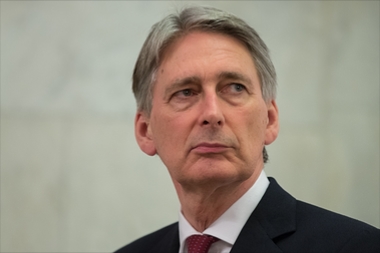All you need to know about the Autumn Statement

Revitalising Britain’s business productivity was at the heart of the first Autumn Statement by new Chancellor Philip Hammond, as he vowed to help revive UK competitiveness
Jermaine HaughtonIn his first major statement since the Brexit vote, new Chancellor Philip Hammond has announced a number of initiatives aimed at showing the world: ‘Britain is open for business’.
One of Hammond’s main challenges after picking up the reins from George Osborne will be to solve the UK’s enduring productivity problem, with the country currently lagging behind its G7 rivals.
A deficit in professional management contributes to the UK’s productivity problems so, to help combat this, Hammond has committed £13m to enact Sir Charlie Mayfield’s proposal to improve management skills across British business.
“Productivity is vital not just in driving the growth agenda, but increasing social prosperity and improving living standards, too,” Mayfield said in his report earlier this year. “Yet our current productivity trajectory is flat… The routes to improvement are many and varied but they all depend on strong ambitious business leadership and enduring action on the ground.”
Read more: The three practical steps to building productivity put forward by Mayfield
Responding to today’s Autumn Statement, CMI chief executive Ann Francke said she hopes UK employers will be inspired to show similar investment in their workforce’s management training.
“The Chancellor’s £13m pledge for Sir Charlie Mayfield’s review’s plan to support firms’ management skills shows that as a nation our businesses too are only just about managing (JAM),” she said. “Currently, only one in five businesses invest in management skills. The Chancellor’s comment signals that we need world-class management and leadership to close the gap with our G7 competitors.”
In addition to investing in the management of British business, Hammond has also pledged to invest in regional infrastructure, which will help to improve the productivity of companies outside London.
“This government recognises that for too long, economic growth in our country has been too concentrated in London and the south east,” he said. “That’s not just a social problem, it’s an economic problem. London is one of the highest-productivity cities in the world and we should celebrate that fact. But no other major developed economy has such a gap between the productivity of its capital city and its second and third cities.
“So we must drive up the performance of our regional cities. Today we publish our strategy for addressing productivity barriers in the Northern Powerhouse; and give the go ahead today to a programme of major roads schemes in the north.”
The chancellor says the government will also invest 1% to 1.2% of GDP on economic infrastructure, compared to the current 0.8%, and will double UK export finance capacity to help firms sell their services and products abroad.
Changes to pay and tax
Minimum wage incomes will experience a boost following Hammond’s announcement today that the National Living Wage will increase from £7.20 an hour to £7.50 in April next year, adding up to an extra £500 every year.
Guy Stallard, director at KPMG, lauded the rise explaining that it will make a “huge difference” for adult minimum wage employees.
“Today’s announcement will see a significant number of workers aged 25 and above get a pay rise,” he said. “This [30p increase] may seem like small change to some, but for many people it’ll make a huge difference. With the cost of living higher than it’s ever been, the reality for many is that they are forced to live hand to mouth.
“The increase in the National Living Wage will go a long way to save swathes of people being caught between the desire to contribute to society and the inability to afford to do so.”
Sticking to the business tax roadmap that was set out in March, Hammond also promised that corporation tax will fall to 17%, by far the lowest rate of overall corporate tax in the G20 – highlighting the government’s stated aim to make Britain an attractive place to run a business.
How will Hammond’s announcements affect British business? Have your say on the future trends in management in our Future Forecast survey, here

Press & Media Enquiries
For more information or to request interviews, contact CMI's Press Team on 020 7421 2705 or email press.office@managers.org.uk


